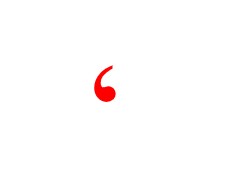 Thanks to clickbait and social media, use of the apostrophe (or “sky comma”) is a lost art. The most common (and often ridiculed) error is, of course, your/you’re. When you’re typing at a million miles an hour and want the words down, it’s easy to “hear” a word and pick the wrong spelling. For all the jokes about your/you’re, it’s something a ninth grader doing a proofread of your manuscript can spot. Assuming that ninth grader doesn’t believe texting should be the basis of grammar. Spoiler alert: It shouldn’t. k thx bye!
Thanks to clickbait and social media, use of the apostrophe (or “sky comma”) is a lost art. The most common (and often ridiculed) error is, of course, your/you’re. When you’re typing at a million miles an hour and want the words down, it’s easy to “hear” a word and pick the wrong spelling. For all the jokes about your/you’re, it’s something a ninth grader doing a proofread of your manuscript can spot. Assuming that ninth grader doesn’t believe texting should be the basis of grammar. Spoiler alert: It shouldn’t. k thx bye!
For the most part, people get contractions right. “He’s,” “they’re,” and “can’t” are all common examples. Frequently, I do see the apostrophe left out of “can’t.” In a manuscript, I’ll flag it. That’s what I get paid to do, among other things. Reading it, it’s not the most egregious apostrophe error out there.
Where do we get it wrong? Possessives. People can’t seem to wrap their head around when an apostrophe should or should not use it to denote possession. After all, we use his/her/their for third person possession. Where’s the apostrophe? Pronouns, aside from being the most monumentally stupid thing for politicians to whine about, are their own thing with their own rules. No formal name or specific noun denotes the possessor. Except…
There’s that pesky pronoun “It.” “It’s” is not possessive but rather a contraction for “It is.” When, as a pronoun, “It” possesses something, then you write “its,” no apostrophe. The easiest way to remember it is pronouns don’t use apostrophes for possession: Mine, our, your, his, her, their, and its.
Now, let’s talk about where people really grind my gears: Slapping an apostrophe in to indicate plural or omitting it to indicate possession. STOP DOING THAT!!! You know I’m worked up about that if I use three exclamation points after a sentence. That, in and of itself, is extremely bad grammar. So hopefully, I made my point.
Every so often, I’ll see a sign as I’m driving along or even online where someone wrote something along the lines of “Drink’s and Sandwich’s.” One had it as “Johnnys Bar.”
If you needed more proof civilization is in decline, there it is. It’s “Johnny’s Bar” and “Drinks and Sandwiches.”
Worse, some people labor under the delusion that the apostrophe goes before every “s” at the end of a word, especially if it’s a plural. STOP DOING THAT!!!
Now, the question on everyone’s mind once they realize how easy apostrophes are: What if a name or noun ends in an “s”?
Well, as we say in SQL Server work, “It depends.” This is one where the style guides vary wildly. Are we going to Charles’ house or Charles’s house? The Chicago Manual of Style says “Charles’s house” while the AP and various British guides suggest “Charles’ house.” Even Jess Zafarris and Rob Watts of the Words Unraveled YouTube channel can’t agree. Rob himself, a former BBC reporter now living in Germany, says he’s been forced to change with every style guide his work requires. And if it’s “Charles’s,” do you pronounce that second “s”?
Here is TS’s guide to the sky comma when it comes to nouns ending in “s.” It’s possessive, so use “‘s” at the end. However, it’s an S, followed by an S. You don’t have to say it out loud. This is what I learned in school, what a potential agent told me to use (I laid down the law on the Oxford comma, but she was in agreement it’s mandatory. Get over it.), and ultimately, what the Chicago Manual uses.